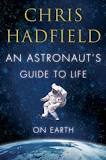Deciding among the shoes to pack for a trip requires the same approach as does writing short stories.
Take only the essentials and not a pair for every possible season and whimsy.
Writing short stories, like packing shoes, is done in a small space confined to the basic elements of storytelling.
The length of a short story varies depending on the writer, editor or publishing house doing the defining. The definitions I’ve found describe short stories as 1,000-5,000 words or anything up to 7,500 words or up to 10,000 words.
Because there are fewer words, a short story has to be limited to a specific time, place, event and interaction.
Whereas a novel can span a day or a year or more, a short story’s timeframe typically covers days or weeks. The short story cannot include too many places or events without feeling strained or scattered, or like a list.
A novel, because it is larger scale, offers more pages to develop ideas, plot, character and theme. At most, a short story can handle a plot and a small subplot, or a plot and a half.
Short stories get to the point and don’t have the time or space for long setups. They begin with a crisis or conflict right away and avoid describing how the conflict came about.
Stories, as a snapshot into the lives of the characters, avoid long character histories and descriptions. They have a few characters, so that the reader can identify with each character and keep them straight. Too many, and the story can become confusing.
Here are a few other rules about writing short stories (though rules are made to be broken, of course):
* Show, don’t tell with the action.
* Use one or very few settings.
* Use first or third-person, or two characters shifting point of view.
* Express a single theme, or message to get across to the readers.
Novels, which are 50,000 words or more from the definitions I’ve seen, include more material – characters, settings, plots and details – to sustain readers’ interest over several reading sessions, unless they are willing to sit for hours or an entire day. A short story, alternatively, can be consumed in one sitting in a few minutes or a couple of hours.
 All I can think of is those astonishing photos from the ISS (International Space Station). Seems I clicked "like" immediately on visuals posted by Col. Chris Hadfield while he was up there. I watched his YouTube videos, singing with kids, giving science lessons and patiently answering for the hundredth time how astronauts use the bathroom in a weightless environment. (That question must get SO old!)
All I can think of is those astonishing photos from the ISS (International Space Station). Seems I clicked "like" immediately on visuals posted by Col. Chris Hadfield while he was up there. I watched his YouTube videos, singing with kids, giving science lessons and patiently answering for the hundredth time how astronauts use the bathroom in a weightless environment. (That question must get SO old!)

